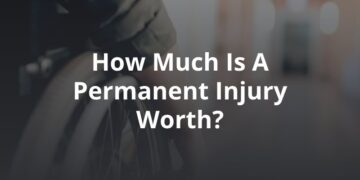Settlement negotiations with an insurance company can be complex, lengthy, and difficult to navigate. There are many different factors that help determine ultimate settlement amounts.
How Do Settlements Happen?
A settlement is the resolution of a claim outside of court. Typically, this happens after negotiations between the parties prove successful, and the parties (and their insurance companies) agree on an amount that will compensate the victim for their damages.
A settlement can also happen during alternative dispute resolution methods, such as mediation. Generally, when a settlement happens, any corresponding claim that was filed in court will be dropped or otherwise closed.
A settlement typically involves a document called a settlement agreement, which will set out the rights and obligations of the parties in connection with the settlement. This document will discuss the terms of the settlement, including the amount to be paid to the victim, any admissions of fault or liability, and the resolution of the claim. Settlement agreements need to be in writing and signed by the parties, and they are enforceable by the court. Some—particularly in high-profile cases or those involving a high amount of damages—may be kept confidential.
How Do Insurance Companies Determine Settlement Amounts?
There are many different variables that are taken into account when deciding on a settlement amount. For example:
- The type of claim you are making. There may be different processes involved in making a claim on an auto insurance policy versus a homeowner’s insurance policy, for example.
- The policy limits and amounts allowed for recovery. The amounts of the other party’s insurance policy may affect your ultimate settlement amount.
- The nature and extent of your injuries. More serious injuries, such as traumatic brain or head injuries, spinal cord injuries or paralysis, or injuries resulting in daily life disruptions are generally valued higher and may result in a higher settlement offer. Additionally, any pre-existing conditions you may have can also affect the settlement amount.
- The long-term effects of your accident on your life. Injuries that are permanent, disabling, or severely impact your lifestyle may lead to a higher settlement amount. Also, the insurance company will consider any lost income, pain and suffering, and other serious life disruptions in weighing settlement options.
- The strength of your case. The facts of your claim matter, and the more likely you are to present a strong claim, the more likely that the insurer will want to settle. This factor takes into consideration the strength of your supporting documentation, photographs, witnesses, and evidence, as well as the legal arguments that serve to strengthen your claim.
- The distribution of fault. If the other party is entirely at fault for your injury, that can make settlement more likely. If you are partially at fault for the accident, your total potential recovery may be reduced, and any settlement amount may reflect that reduction. In connection, the statements you make and actions you take can influence settlement negotiations—this is just one of many good reasons to speak with an experienced insurance attorney before you speak with the insurance company’s representatives.
- Previous matters. In some cases, previous jury verdicts or settlements, particularly in similar cases, can affect the amount for which an insurance company is willing to settle your claim.
The process of settling a claim can involve lengthy and complex negotiations between the parties and any insurance companies involved. In many cases, you may need to sue the insurance company in order to be able to negotiate a settlement. Typically, negotiations occur before a trial takes place, in hopes of keeping the case from going in front of a jury. However, in many cases, negotiations can continue throughout the entire legal process.
How Can FVF Law Help People Get the Best Settlement Possible?
Negotiating with insurance providers requires the expertise to dodge their sophisticated tactics and apply pressure until they have no choice but to offer you a fair settlement. While anyone can act as their own representative in a lawsuit, it is difficult to manage such a fraught and complex situation without the help of a lawyer.
After all, the insurance company will have its own team of experienced injury lawyers ready to do battle. An attorney can help not only by negotiating with the insurance company to obtain a favorable offer but also by mitigating some of the factors that may work against you.
We have the experience necessary to go up against an insurance company. At FVF Law, we are committed to securing the best possible outcomes for our clients. We also want to equip anyone who may be unsure how to proceed with the resources they need to make informed decisions.
We offer free, no-pressure case consultations to discuss the unique circumstances of your case and the best strategy for securing fair financial recovery.
Contact us if you would like to schedule a consultation.









